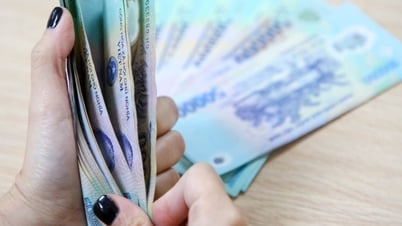In the draft Law on Personal Income Tax (amended), the Ministry of Finance proposed to change the tax calculation method for resident individuals transferring securities to the direction of levying on taxable income during the period (by year), with a tax rate of 20%. Taxable income is the difference between the selling price and the buying price, after deducting related reasonable expenses. In case the buying price and expenses cannot be determined, the transferor will pay tax at the rate of 0.1% on the selling price each time, similar to the method currently applied.
For capital transfers, the Ministry also proposed applying a tax rate of 20% on taxable income for each transaction. If the purchase price and costs cannot be determined, the applicable tax rate is 2% of the transfer price.

Previously, Personal Income Tax Law 04/2007 allowed individuals to temporarily pay tax of 0.1% on the selling price and finalize at the end of the year if the net income was determined. However, since 2015, Law No. 71/2014 has stipulated that the only collection method is 0.1% on the selling price each time, regardless of profit or loss, and there is no need for finalization at the end of the year.
This method is considered unreasonable because it imposes tax even when the seller suffers a loss. Many opinions have proposed switching to calculating tax based on net income to ensure fairness. According to the Ministry of Finance, this amendment aims to overcome shortcomings and approach international practices.

Citing countries, the finance ministry said Indonesia collects 0.1% of revenue from listed stocks, while the Philippines imposes a tax of 0.6% on the total value of transactions. Japan imposes a 20.3% tax on gains from the sale of securities such as stocks and bonds. China collects 20% on unlisted securities, while Thailand applies ordinary income tax to capital gains.
Regarding derivative securities, the Ministry of Finance noted that it is necessary to clearly distinguish them from underlying securities. Derivatives do not have intrinsic value and do not transfer the entire transaction value like stocks and bonds. Therefore, trading activities only record the difference (profit/loss), which is not suitable for applying the same tax calculation method as underlying securities.
Source: https://baogialai.com.vn/bo-tai-chinh-de-xuat-danh-thue-20-tren-lai-chuyen-nhuong-chung-khoan-post561227.html



























![[Photo] Signing of cooperation between ministries, branches and localities of Vietnam and Senegal](https://vphoto.vietnam.vn/thumb/1200x675/vietnam/resource/IMAGE/2025/7/24/6147c654b0ae4f2793188e982e272651)








































































Comment (0)